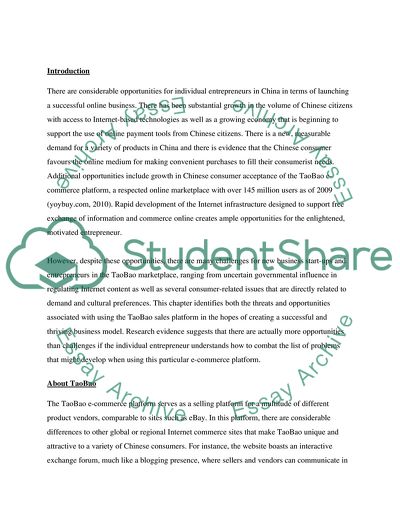Cite this document
(Challenges of Starting up an Online Business in China Essay, n.d.)
Challenges of Starting up an Online Business in China Essay. Retrieved from https://studentshare.org/e-commerce/1740565-opportunities-and-challenges-of-starting-up-online-business-in-china-a-case-study-of-online-buisness-based-on-taobao-e-commerce-platform
Challenges of Starting up an Online Business in China Essay. Retrieved from https://studentshare.org/e-commerce/1740565-opportunities-and-challenges-of-starting-up-online-business-in-china-a-case-study-of-online-buisness-based-on-taobao-e-commerce-platform
(Challenges of Starting up an Online Business in China Essay)
Challenges of Starting up an Online Business in China Essay. https://studentshare.org/e-commerce/1740565-opportunities-and-challenges-of-starting-up-online-business-in-china-a-case-study-of-online-buisness-based-on-taobao-e-commerce-platform.
Challenges of Starting up an Online Business in China Essay. https://studentshare.org/e-commerce/1740565-opportunities-and-challenges-of-starting-up-online-business-in-china-a-case-study-of-online-buisness-based-on-taobao-e-commerce-platform.
“Challenges of Starting up an Online Business in China Essay”, n.d. https://studentshare.org/e-commerce/1740565-opportunities-and-challenges-of-starting-up-online-business-in-china-a-case-study-of-online-buisness-based-on-taobao-e-commerce-platform.


